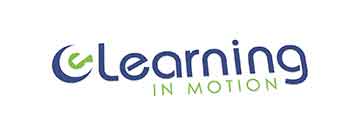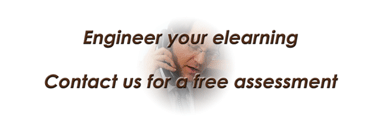I have seen time and again great tools out there that I could use to build great eLearning or online courses. After some research my heart gets broken yet again, my LMS (learning management system) does not play well with other eLearning technology I want to use. The only way I can provide my learners with this experience is by asking them to log again into another platform. The other option (usually expensive) is to pay for custom development.
Of course, eLearning did not develop integration standards since its inception in education. When LMSs were born, nobody thought of using other solutions with it. All we needed was a place to manage an online course that was mostly text-based. Then multimedia came along, the push was so hard that LMS developers decided to work on developing solutions that could be integrated with their platform. An LMS which does not allow for multimedia is going to die slowly in the current market.
SCORM was created as a standard for external elements, users could upload these into an LMS and they would work as intended. These standards took some time to catch on, LMS systems now all offer SCORM integration. The standard is moving to a new set of rules and LMSs are taking some time to react to these changes, SCORM is not going away soon. Then authoring tools came to the market and the push to use SCORM created a need for it, which has led to groups working on new standards and new technologies for a more comprehensive solution.
What I mentioned so far is related to content, what about add-ons to the LMS? More recently a push has come for smaller companies (or even large ones) to develop technologies that can deploy in an LMS. For example, there was no solution for instructors to check if a student had plagiarized a submitted paper. TurnIt In and other solutions came along, and now it can easily be integrated in many LMS systems.
Many LMS systems have allowed the embedding of YouTube videos, which instructors can use as additional materials. Some instructors have posted their own videos for class. Of course, there are many commercial and free solutions out there for video in eLearning courses. In this same topic, LMS systems did not have a synchronous solution such as a virtual classroom platform. Many of them can be integrated into the LMS, this way students can participate in virtual classes, or they can interact with other students in the class.
In both cases mentioned above, plagiarism checkers and video lectures, the technologies developed outside of the LMS, they were later integrated in the LMS as an additional feature. It seems that is the case for many other solutions that have been added to LMS systems. But there are still some kinks to work on, and all of them are related on how much LMS developers would want to open their systems for third party systems.
Many have chosen the route of custom development, this can be a feasible solution, if you have the resources and a team to manage the project. There will be many meetings to work out details, there will be meetings with developers, there will be many hours spent testing and solving bugs. It may work out at the end or it could fail, which means a lot of resources spent, which you could have spent somewhere else.
To me it is clear LMS developers are moving towards a more open system where they can allow the easy integration of other solutions. I think it is moving towards the model currently in place for WordPress. In this CMS (content management system) developers can bring a solution called plug-in, which is installed to add a functionality to the site. Developers need to follow standards to be able to publish these programs. It allows for an easier integration, but it is not bug-free, sometimes things would break down and patches need to be made.
I think the LMS will eventually evolved towards a live system where many participants will follow the rules (and may pay an entrance ticket) to post solutions that both students and instructors could use to improve the LMS experience. It is happening with many large systems such as Canvas and Blackboard. It seems LMS developers are taking a hint that the market is moving there, that would be good for all of us users.
As always, find us in social media. You can share this content by using the buttons below. If you have questions and comments, use the form at the bottom of this page, or contact me directly, and I will get back to you as soon as I can. Thank you for reading this post.

